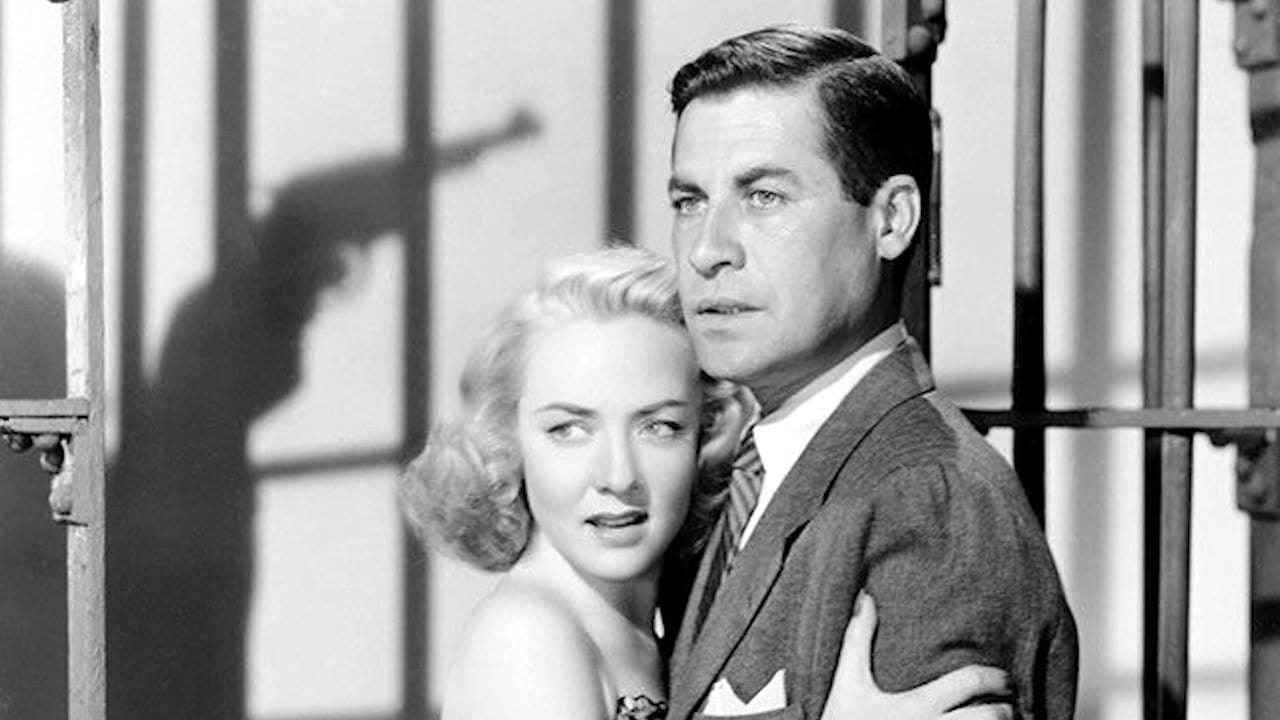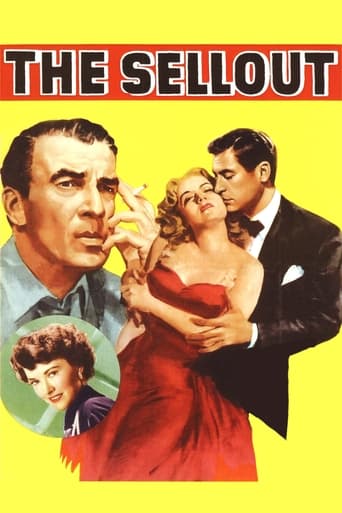



Boring, over-political, tech fuzed mess
It's the kind of movie you'll want to see a second time with someone who hasn't seen it yet, to remember what it was like to watch it for the first time.
View MoreBy the time the dramatic fireworks start popping off, each one feels earned.
View MoreThe movie really just wants to entertain people.
I disagree with the general trend of reviews for this film. I think it's a very strong film. However, it has the feel of a small film...but I think that's what was required here because it's a film about a very small town. Small town -- small film. That's a match.At first glance, it looks as if the plot is going to be pretty simple. Newspaper editor is arrested in a small hick town on false charges and will lead a crusade to clean up the town. Until he uncharacteristically steps back and decides to leave his town completely. Huh? Walter Pidgeon running away? Fortunately, someone takes up the crusade -- but not Pidgeon's son-in-law, a county prosecutor. Hmmmm. A family that has high ideals until they're put to the test? But someone has to lead the charge. So that falls to John Hodiak, a state prosecutor. And he faces a brick wall because everyone is afraid to testify against the small town thugs.Will the newspaper editor testify? And if not, why not? Today's audiences may not believe that there were places like this back before the 1960s. People did sometimes virtually disappear.Walter Pidgeon is quite good here as the newspaper editor; I wonder how he liked a film where for at least part of the time he appeared to be a coward. John Hodiak is very good as the state attorney. Thomas Gomez is good...and disgusting...as the crooked sheriff. Karl Malden is good as an honest cop.I don't find a lot here to criticize. The ending gets -- as a couple have already said -- a little preachy and too idealistic. And, I think they could have made more earlier in the film about the dilemma facing Walter Pidgeon.I liked it and recommend it.
View MoreA reporter (Walter Pidgeon) happens to go through a county in the countryside. He is pulled over by the cops and arrested--though he'd done nothing. Then, in court, he sees that one by one, innocent folks are being shaken down by a corrupt sheriff and a corrupt judge. So, he makes it his crusade to bring down these crooks. As he digs, Pidgeon sees that this organized crime runs deeper--these 'cops' help run illegal gambling and various vice operations! When he appeals to people higher up in the state government, people are reticent to do anything--after all, that county brings votes to the state party machine. What can be done? Eventually, Pidgeon's articles have an effect and John Hodiak is sent from the state prosecutor's office to investigate. But his case isn't easy--as the reporter has just disappeared and so has his file on the corrupt county.Some time later, Pidgeon returns home--briefly. There's not much of an explanation where he was, he's ready to move to Detroit and he has no interest in following up on his articles on corruption. It's obvious he's scared and has no intention of continuing. Can Hodiak change his mind? He sure needs Pidgeon's help with the investigation.All in all, an exceptional film--tough, exciting and well-acted. My only quibble, and it's a little one, is that the film is a tad preachy at the end. Still, it's a nice film--well worth seeing--especially since the cast was so capable. In addition to Hodiak and Pidgeon, the film has support from Audrey Totter (who plays a great dame), Thomas Gomez (who's almost always the heavy), Everett Sloan, Cameron Mitchell, Whit Bissell, Karl Malden and Frank Cady (Sam Drucker from "Green Acres")--a very impressive list. It was also cool seeing Burt Mustin playing the corrupt judge--the sort of role you wouldn't expect from this fun character actor.
View More**SPOILERS**A bit over-plotted film about political corruption involving the overstuffed, in his stomach as well as ego, and arrogant Ridgewood Country Sheriff Kellwin C. Burke, Thomas Gomaz, who feels that his word is law in the county.It's when Sheriff Burke tries to put the squeeze on the Daily Intelligencer Newspaper's editor the highly respected and ethical Haven D. Allridge, Walter Pidgon, that he finally took on more then he could swallow. It's when Allridge and his friend, whom he was giving a lift home, Wilfred Johnson, Whit Bissell, were arrested by Burke on trumped up charges-in Allridge not having his drivers license on him-that Burke and his stooges got more then they bargained for.Exposing Burke's corrupt activities in Ridgewood County on the front pages of his newspaper Allridge had Burke & Co. start to play rough with him. Burke had one of the trucks delivering Allridge's paper run off the highway and its driver killed. It was then that both local Ridgewood County police Captain Buck Maxwell, Karl Malden, and Federal Prosecutor Charles "Chick" Johnson, John Hodiak, got on the case. Just when everything was going fine in getting Burke indited on a slew of Federal and local violations of the law, including murder and intimidating witnesses, that all the 55 persons who were willing to testify against him suddenly lost their memories! One of those witnesses included that right and honest as well as crusading editor of the Daily Intelligencer Haven D. Allridge!***SPOILER ALERT*** It's very obvious that Burke and his men got to Alldrige after setting a trap for him and working him over at the Amboy Bar and Grill Nightclub. But the real reason for Allridge turning yellow and attempting to leave town, to Detroit no less, was far more shocking then just a few lumps on his head! It was something very very close to home that if brought out would destroy not only himself, in Allridge not being able to do his job affectively, but his daughter Peggy, Paua Raymond, and her husband Ridgewood County prosecutor Randy Stauton, Cameron Mitchell!The film "The Sellout" shows how political corruption effects all of those that are surrounded by it even if they have to guts, like Haven Allridge, to stand up and fight against it. There's always something that the people of Ridgewood County have hidden in their closet, involving friends and relatives, that if exposed will bring the roof down on their heads. This is what kept Burke in power all these years in knowing these secrets, that in many cases he was involved in, and using them against men like Allridge who dared to stand up to him. It was in the end courageous men like Chick Johnson and Capt. Buck Maxwell who were immune for Burke's blackmailing tactic who finally brought him and his gang of murderous cut throats to the bar of justice.
View MoreAn enviable cast of noir veterans (John Hodiak, Audrey Totter, Walter Pidgeon, Thomas Gomez, Everett Sloane, and Karl Malden) tackling an all-American storyline - a newspaper crusades against municipal corruption - promises something above the ordinary. But The Sellout's promise, like cold fusion's, proves an inflated one; the movie never quite ignites. An editor from a mid-sized city (Pidgeon), visiting his daughter's family in a neighboring county, drives into a speed trap. He's thrown into jail, subjected to a prisoners' kangaroo court, and fined the entire contents of his wallet. Once back, he launches a crusade against this hijacking of the law, lining up witnesses and publishing blistering editorials against Gomez, the sheriff, and county boss Sloane. Then, abruptly, he leaves town and the campaign ceases.A prosecutor from the state capital (Hodiak) is sent to investigate; upon arrival, he's ambushed by a B-girl and shantoozie (Totter) who works at the machine's headquarters, a road house called Amboy's. Her philosophy of life is eloquent: (`Who makes plans? You do the best you can - Sometimes you wish things turned out differently.') But she grows sweet on him and warns him off. With the help of honest cop Malden, Hodiak tries to get to the bottom of the editor's silence, but everywhere encounters a stone wall. It turns out that the corruption runs very close to home....Probably the biggest shortcoming of The Sellout is relegating Totter to a sub-plot that fizzles out too early; she lends the movie whatever quirky subversiveness it shows. For the most part, however, it's four-square - there's little visual excitement - and a little too self-important. Though crowded with incident, it ends up just plodding along. It's also rooted in a now (one hopes) vanished America where out in the boondocks, away from the bright lights of civilization, lurked pockets of unexpected peril. The billboards marking the city limits might have well warned: Beyond here lie monsters.
View More